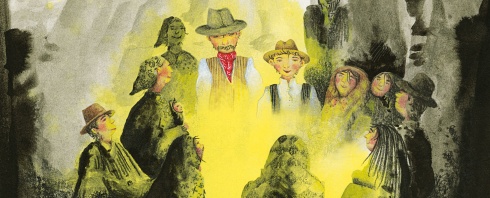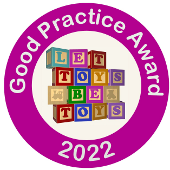
Our Travellers Tales use some traditional Romani words and phrases which you may not be familiar with. Learn some new terms and their meanings below!
Polonius the Pit Pony
Gry: Horse
Sulky: Lightweight two-wheeled cart
Jallin the drom: Travelling the road
Daddo: Daddy
Vesh: Forest
Habben and a besh: Food and a sit-down
Habben: Food
Ossiri and the Bala Mengro
Bala Mengro: Hairy person
Tattin Django: Recycling music
Daddo: Daddy
Dordi: Oh dear
Rag-and-bone: Material for recycling such as cloth, bones, and metals
Tattin Folki: Rag-and-bone people
Yokki and the Parno Gry
Parno Gry: White horse
Phuri Dai: Grandma
Daddo: Daddy
Chavvies: Children
Folki: People
Chopping horses: Selling/swapping horses
Tel te Jib: Hold your tongue
Activity ideas
Warm-up activities before reading the book:
Write or print the words and meanings onto A4 paper.
Give each child a word or definition and challenge them to find their counterpart.
Read the book together to see if they guessed correctly.
If there's time, you could do the activity again at the end to see if the children have learned the words after hearing them in context.
Start a discussion about dialects by using examples of local slang which children may be familiar with.
You could look at the differences between American English and British English, or try to interpret some Cockney rhyming slang together.
Explain that the book contains some examples of traditional Romani words, and ask the children to point them out.
There is a glossary on the page opposite the book's title page, and you could use this to encourage children to look up unfamiliar words.
If you feel that stopping to flip back to the first page disrupts the story, you could print out the glossary, or display it on the smart board while reading.
After reading the book
Create a large classroom display to recreate a scene from the book.
Use the words above to label the elements of the scene.
If you have the audio CD with Richard O'Neill's narration, give the children sheets of paper with the definitions from the glossary on.
Ask them to hold up the definitions when they hear the word in the story.
 Go to USA site
Go to USA site Go to AUS site
Go to AUS site


Email this page to a friend